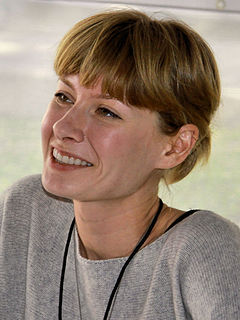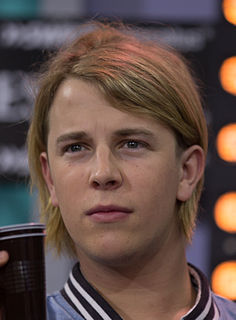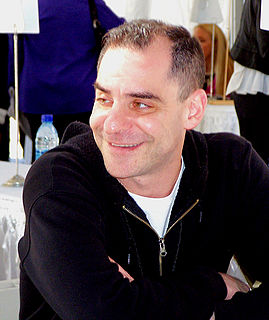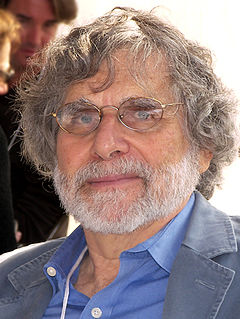A Quote by Haruki Murakami
In my younger days, I was trying to write sophisticated prose and fantastic stories.
Quote Topics
Related Quotes
I always was interested in prose. As a teenager, I published short stories. And I always wanted to write the long short story, I wanted to write a novel. Now that I have attained, shall I say, a respectable age, and have had experiences, I feel much more interested in prose, in the novel. I feel that in a novel, for example, you can get in toothbrushes and all the paraphernalia that one finds in dally life, and I find this more difficult in poetry.
Of course all children's literature is not fantastic, so all fantastic books need not be children's books. It is still possible, even in an age so ferociously anti-romantic as our own, to write fantastic stories for adults: though you will usually need to have made a name in some more fashionable kind of literature before anyone will publish them.
Even happy situations can easily start to feel miserable. So, I think that people who consider themselves sophisticated or who are in fact sophisticated have come to distrust stories that are uplifting or simply stories in which the characters get what they want in the end. Because in life, what you want is never the end.
In high school, in 1956, at the age of sixteen, we were not taught "creative writing." We were taught literature and grammar. So no one ever told me I couldn't write both prose and poetry, and I started out writing all the things I still write: poetry, prose fiction - which took me longer to get published - and non-fiction prose.
The 250-page outline for American Tabloid. The books are so dense. They're so complex, you cannot write like I write off the top of your head. It's the combination of that meticulousness and the power of the prose and, I think, the depth of the characterizations and the risks that I've taken with language that give the books their clout. And that's where I get pissed off at a lot of my younger readers.




































